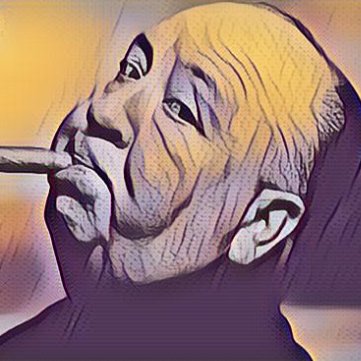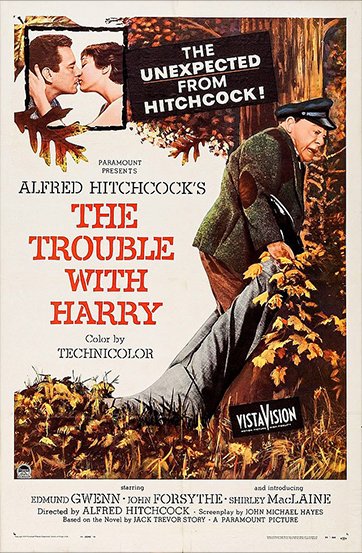The Hitchcock Hype
Alfred Hitchcock is widely regarded as one of the greatest filmmakers in history due to his significant contribution to the cinema industry. Through his unique style, Hitchcock revolutionized the art of suspense in cinema and created a distinctive brand of thriller films that blended tension, humor, and psychological drama. He is also credited with elevating the status of film directors, placing them on par with other great artists of the time.




Hitchcock’s remarkable achievements in the film world include his directorial work in over 50 films, spanning several decades, and his pioneering of the use of camera movements, lighting, and creative editing techniques, setting a standard that still influences film-making today. Some of his iconic works include “Rebecca,” “Vertigo,” “Psycho,” and “Rear Window,” which continue to be celebrated for their innovative storytelling and remarkable cinematography.
Hitchcock’s influence on the film world continues to resonate today, and he remains an inspiration to filmmakers worldwide. His legacy is the result of his creative vision and uncompromising dedication to the art of film, making him one of the greats that shaped the medium’s history.
Early Life and Career of Alfred Hitchcock
Childhood and Education
Alfred Hitchcock was born on August 13, 1899, in Leytonstone, London. He was the youngest of three children and grew up in a strict Catholic family. Hitchcock was a loner and enjoyed reading and drawing. He attended St Ignatius College, a Jesuit school, where he developed an interest in sports and art. After school, he studied engineering and navigation at the University of London, but soon realized that his passion was in the arts.
Early Career in the Film Industry
In 1920, Hitchcock started working in the film industry as a title card designer for a British film studio. He soon moved up to become an assistant director and worked on numerous films, including “The Lodger” (1927), which is considered his first significant film. Hitchcock’s career took off after he directed “Blackmail” in 1929, which was his first talkie film. He went on to direct over 50 feature films and became known as the “Master of Suspense.”
Hitchcock’s Directorial Style and Techniques
Hitchcock’s Signature Style
Hitchcock was known for his signature style, which included the use of dark humor, clever plot twists, and suspenseful music. He often used recurring themes in his films, such as the “wrongfully accused man,” and the “blonde woman in danger.” Additionally, Hitchcock made brief cameo appearances in many of his films, which became a trademark of his.
The use of Suspense and Tension in Hitchcock’s Films
Hitchcock’s films were known for their ability to create suspense and tension, which kept audiences on the edge of their seats. He used various techniques to achieve this, such as building up the tension through music and camera angles. Hitchcock also used the “MacGuffin,” which was an object or idea that was central to the plot but had no real significance in itself. For example, in “North by Northwest,” the MacGuffin was the microfilm that everyone was after.
Technical Innovations by Hitchcock
Hitchcock was also known for his technical innovations in filmmaking. He used groundbreaking camera techniques, such as the “Vertigo effect,” which created a sense of disorientation by zooming in while simultaneously moving the camera backwards. Additionally, Hitchcock experimented with sound, using it to create suspenseful moments in his films. For example, in “Psycho,” the sound of the shower running was used to create tension before the infamous shower scene.
Notable Films Directed by Alfred Hitchcock
Psycho
“Psycho” (1960) is perhaps Hitchcock’s most famous film, known for its shocking plot twist and infamous shower scene. The film follows Marion Crane (Janet Leigh), who steals money and ends up at the Bates Motel, run by the mysterious Norman Bates (Anthony Perkins).
Vertigo
“Vertigo” (1958) is a psychological thriller about a retired detective (Jimmy Stewart) who is hired to follow the wife (Kim Novak) of an old friend. The film explores themes of obsession and identity, and is known for its use of the “Vertigo effect.”
North by Northwest
In “North by Northwest” (1959), an advertising executive (Cary Grant) is mistaken for a government agent and pursued across the United States. The film is known for its exciting action scenes and memorable set pieces, such as the crop duster chase.
Rear Window
In “Rear Window” (1954), a photographer (Jimmy Stewart) is confined to his apartment due to a broken leg and begins spying on his neighbors. However, he soon begins to suspect that one of them has committed murder. The film is known for its clever use of camera angles and suspenseful storyline.
Hitchcock’s Impact on the Film Industry
Legacy of Alfred Hitchcock
Hitchcock’s legacy in the film industry is profound. He pioneered the use of suspense and tension in film and his innovation in camera techniques and sound helped shape the modern thriller genre. His films continue to be studied and celebrated today.
Influence on Future Filmmakers
Hitchcock’s influence can be seen in many modern films, particularly in the thriller and horror genres. His techniques and themes have been used and adapted by countless filmmakers, including Steven Spielberg, Martin Scorsese, and David Fincher.
Hitchcock’s Reception by Critics and Audiences
Hitchcock’s films were both critically acclaimed and commercially successful. His ability to blend suspense, humor, and drama made his films accessible to a wide audience. Hitchcock was also known for his ability to promote his films, often creating elaborate marketing campaigns to generate buzz. Today, his films are considered some of the greatest in cinema history.
Personal Life and Legacy of Alfred Hitchcock
Alfred Hitchcock, also known as the “Master of Suspense,” was a renowned film director and producer. He was born on August 13, 1899, in London, England. His career spanned over five decades, during which he directed over fifty feature films, becoming one of the most influential and respected filmmakers in the history of cinema. Hitchcock’s films were known for their psychological suspense and dark humor, which made him a household name and set the standard for modern-day thrillers.
Hitchcock’s Relationship with His Wife and Family
Alfred Hitchcock was married to Alma Reville, a talented film editor and screenwriter, for over fifty years. The couple had one daughter, Patricia Hitchcock, who followed in her father’s footsteps and became an actress. Hitchcock was known for his love and devotion to his family, often collaborating with his wife on film projects and casting his daughter in some of his movies.
Hitchcock’s Later Years and Health
Towards the end of his career, Hitchcock’s health began to decline, and he suffered from various health issues. In the early 1980s, he suffered a stroke, which left him partially paralyzed and unable to work. He spent his remaining years at his home in Bel Air, California, where he passed away on April 29, 1980, at the age of 80.
Memorials and Celebrations of Alfred Hitchcock’s Life and Work
Despite his passing, Alfred Hitchcock’s legacy lives on. His impact on the film industry is immeasurable, and his influence can be seen in countless movies made after his time. There are several memorials and celebrations of his life and work, including the Alfred Hitchcock Museum in London and the Alfred Hitchcock Film Festival, which takes place annually in Savannah, Georgia. Hitchcock’s films are still beloved by audiences worldwide and continue to inspire filmmakers to this day.Alfred Hitchcock’s contribution to the film industry is immeasurable, and his legacy remains a significant part of cinema history. His unique style and innovative techniques continue to inspire filmmakers across the world. In conclusion, the life, career and work of Alfred Hitchcock will always be remembered as a remarkable example of the art of storytelling through cinema.
Frequently Asked Questions (FAQ)
What were some of Alfred Hitchcock’s most famous films?
Some of Hitchcock’s most famous films include “Psycho,” “Rear Window,” “Vertigo,” and “North by Northwest.”
What was Hitchcock’s signature style?
Hitchcock’s signature style was a combination of suspenseful storytelling, innovative camera techniques, and a focus on the psychological state of his characters. He was also known for making cameo appearances in his own films.
How did Hitchcock influence the film industry?
Hitchcock’s influence on the film industry was significant. He pioneered many innovative techniques that are now commonplace in modern filmmaking, including the use of close-ups, cross-cutting, and subjective camera angles. Hitchcock’s work also inspired many future filmmakers to explore the art of storytelling through cinema.
What is Hitchcock’s legacy?
Hitchcock’s legacy is a lasting one. He is considered one of the greatest filmmakers in history and his films continue to captivate audiences to this day. His influence on the film industry has been immeasurable, and his work remains a benchmark for suspenseful storytelling and innovative filmmaking techniques.
